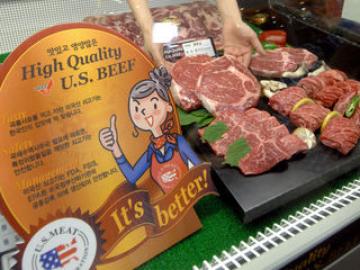Free trade agreements should increase Arizona's ag revenune

 A long-awaited trio of Free Trade Agreements (FTAs) were passed by both congressional chambers last week in a bipartisan effort to open up duty-free export channels to Colombia, Panama and South Korea. The trade deals are being hailed as a boon to the meat and fresh produce industries, both of which have benefited from a weaker dollar. Ag officials are expecting the FTAs to generate nearly $2.5 billion in new agricultural exports nationwide.
A long-awaited trio of Free Trade Agreements (FTAs) were passed by both congressional chambers last week in a bipartisan effort to open up duty-free export channels to Colombia, Panama and South Korea. The trade deals are being hailed as a boon to the meat and fresh produce industries, both of which have benefited from a weaker dollar. Ag officials are expecting the FTAs to generate nearly $2.5 billion in new agricultural exports nationwide.
The International Trade Commission estimates that the three trade agreements combined will create 250,000 jobs. Total export revenue is projected to increase by $13 billion. Tom Nassif, president and CEO of Western Growers – one of many agricultural groups that pushed Congress to approve the FTAs – says the agreements will make American farmers more competitive on the global stage by opening up “export-expanding opportunities”.
In particular, the U.S.-Korea Free Trade Agreement Implementation Act (KORUS) is the most significant FTA since 1993 and is of special concern to Arizona's $625 million agricultural export industry that leans heavily on the state's leading agricultural product – beef. Under the agreement, Korea will gradually reduce its tariffs on imports of U.S. beef from 40 percent to zero over the next 15 years in even, annual increments. The East Asian nation currently represents the third largest beef import market for the U.S.
Free trade with Korea also promises to benefit specialty crop growers and marketers. Almost two-thirds of U.S. farm exports to Korea are now duty-free. This includes cherries, pistachios, almonds, orange juice, grape juice and wine. Korea is the seventh largest export market for U.S. fruit, vegetable and tree nut crops.
Before the FTAs, Panama applied tariffs ranging from 5 percent to 15 percent on Arizona-grown specialty crops. Colombia charged state farmers 5 percent to 20 percent to export to their market. South Korea had established up to 50 percent tariffs on key specialty crops as well as tariff rate quotas. However, all three nations enjoyed significantly freer access to our markets.



